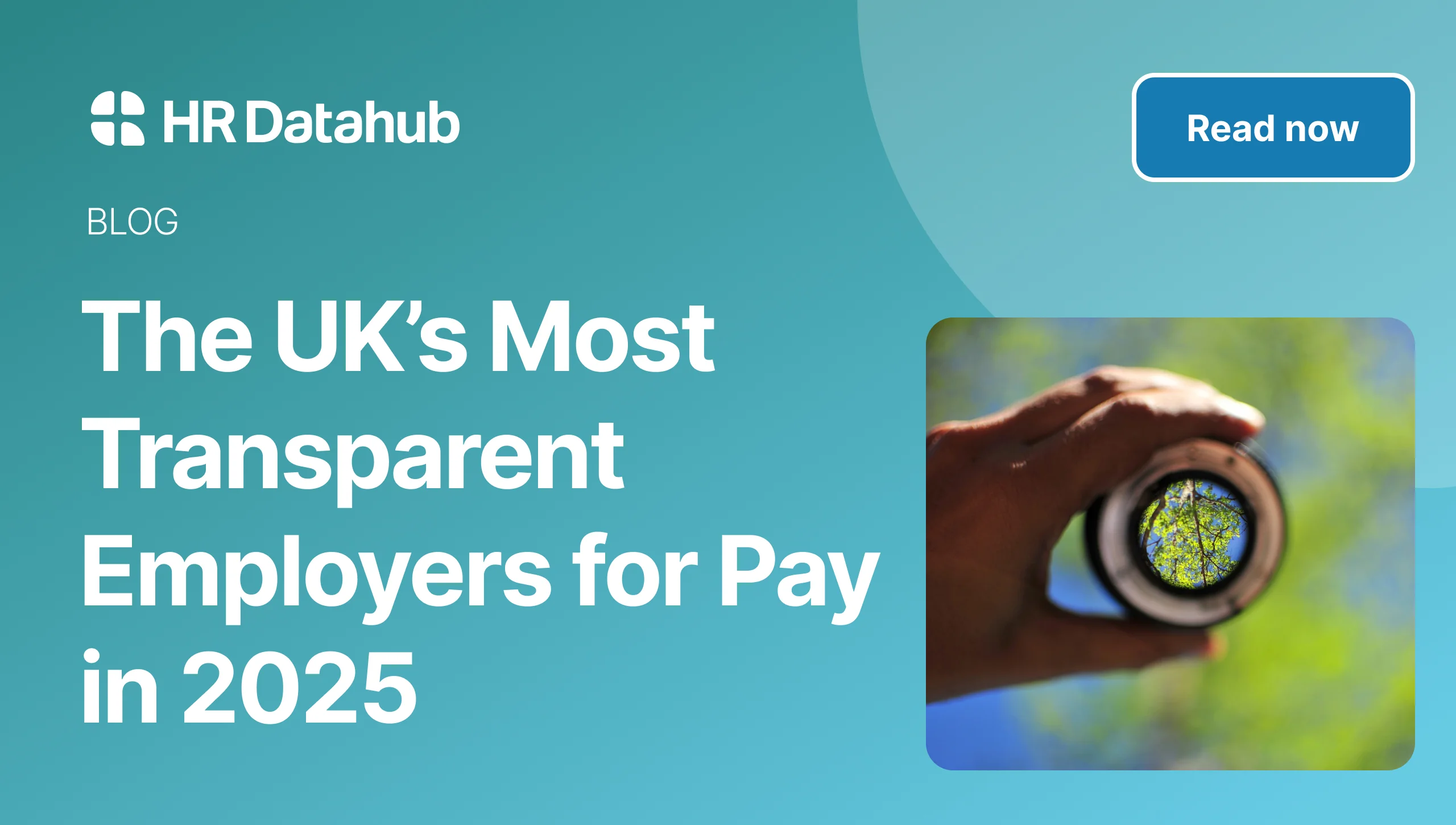

May 8, 2024
May 8, 2024
The Ripple Effects of EU Pay Transparency Directive on UK Businesses: Insights from our latest Webinar

Published by:
David Whitfield
,
CEO & Co-Founder
,
HR DataHub

Reviewed by:
Alexa Grellet
,
COO & Co-Founder
,
HR DataHub

4
MIN READ time
.avif)
In our latest webinar, our own CEO and Co-Founder, David Whitfield, was joined by Rachel Gibbs to delve into the implications of the EU Pay Transparency Directive for UK businesses. Despite the UK's exit from the EU, the directive, which mandates salary transparency and aims to diminish pay discrimination, will inevitably impact UK businesses, especially those with operations or partnerships within the EU.
Understanding the EU Pay Transparency Directive
The EU Pay Transparency Directive, signed in May 2023 and set to take effect in 2026, is a legislative move designed to tackle the gender pay gap and ensure pay equity across member states. The directive requires businesses to disclose pay ranges in job postings, bans pay secrecy, and shifts the burden of proof in pay discrimination cases from employees to employers. For UK companies, though not directly bound by these rules post-Brexit, the directive still presents significant considerations, particularly for those with EU dealings or aspirations.
The Impact on UK Businesses
Rachel highlighted that the directive would directly affect UK businesses in several ways. Companies employing staff in the EU or participating in EU public contracts must comply with the new regulations. Additionally, the directive could influence UK businesses indirectly through competitive pressure and alignment with global best practices in transparency and equity.
One of the key takeaways from the discussion was the potential long-term changes for UK businesses. Even without immediate legal obligations under the directive, UK companies may find themselves adopting similar practices to maintain a competitive edge in attracting and retaining top talent who expect transparency and fairness.

Strategic Benefits of Embracing Transparency
The webinar outlined several strategic advantages for UK businesses considering adopting pay transparency proactively:
- Attracting Talent: Transparent pay practices can make an employer more attractive to potential hires who value clarity and equity in compensation.
- Enhancing Employee Trust and Engagement: Transparency can build trust, leading to higher employee engagement and lower turnover rates.
- Improving Employer Branding: Being ahead in fair pay practices can enhance a company's reputation, making it a preferred partner for clients and collaborators who prioritize corporate responsibility.
Practical Advice for UK Businesses
During the webinar both David and Rachel gave us their practical advice for UK businesses on approaching pay transparency:
- Audit Current Pay Practices: Businesses should start by understanding their existing compensation structures and identifying areas where transparency could be improved.
- Engage Stakeholders: It’s crucial for businesses to involve stakeholders, including leadership and HR, early in the process to align strategies and communicate changes effectively.
- Educate and Train Management: Ensuring that management understands the benefits and mechanics of pay transparency is key to successful implementation.
- Adopt Gradual Changes: Implementing transparency can be a gradual process, tailored to fit the specific needs and capabilities of the business.

The Road Ahead
The webinar concluded with a strong message for UK businesses: the EU Pay Transparency Directive represents both a challenge and an opportunity. By proactively engaging with the principles of the directive, UK companies can not only prepare for potential future regulations but also lead the way in fair pay practices, setting a standard that could define their industry leadership in the coming years.
In sum, while the EU Pay Transparency Directive does not directly bind UK businesses, its broader impacts on market practices and expectations make it a significant consideration. The move towards transparency is not just a compliance issue but a strategic one that could profoundly affect how businesses attract, retain, and engage their workforce. As UK companies navigate these changes, the overarching theme is clear: transparency is not just good ethics; it's good business.
Want to learn more about how the Pay Transparency Directive will affect UK businesses?
You can watch the full webinar back on demand and register for the next event, here.
TABLE OF CONTENTS




